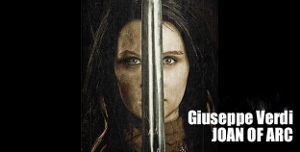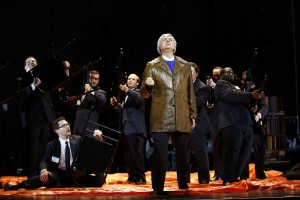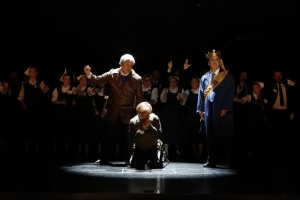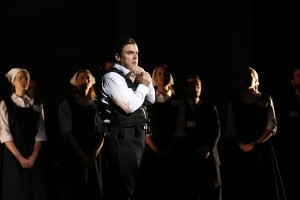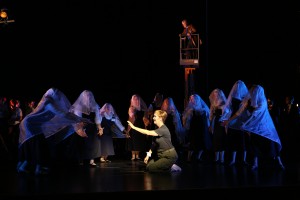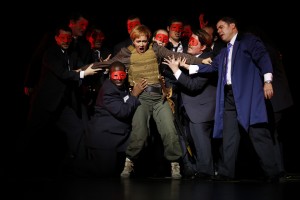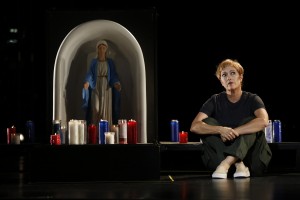VERDI UNLEASHED A DOMESTIC TERRORIST
Written in 1845 and seldom seen since, this early opera by Giuseppe Verdi (whose centenary we celebrate) was a promissory note to be redeemed over and over before 1901. Based on an obscure play by Schiller, the somewhat preposterous plot (with libretto by Temistocle Solera) imagines “Giovanna d’Arco,” but not as the freedom-fighting peasant girl who rescued France from the Brit occupiers and their Burgundian henchmen, and even less so as a proto-feminist icon. No, here she’s a frightening blast from the future.
In Verdi’s strangely domestic version of the saint’s saga, the teenage girl is falsely accused by her religiously disturbed dad of being a witch. Giacomo catches his daughter in the woods, supposedly consorting with Satan but really being seduced by the Dauphin (later Carlo VII, king of France) as she hears the “voices” that tell her to free France. As fervent as he is misguided, this ferocious father (one of many Verdi will be drawn to) tries to turn the French against their own savior and his child.
But after Joan is confined to a stake, both father and king discover that she’s sincere: They kindly allow her to die in battle (no stake in Rouen here). In a glorious operatic apotheosis, a now triumphant Joan appears from heaven in shining armor, equipped to become the protector of France from the afterlife itself.
More than a few liberties were taken by the original potboiler: Even more distancing occurs with Chicago Opera Theater’s seemingly strange and austere reimagining. Radical director David Schweizer conceives the opera as an impromptu passion play/church pageant put on by a fundamentalist sect after the movie they were screening, Sierra Films’ Joan of Arc starring Ingrid Berman and Jose Ferrer, breaks down.
Instantly the church’s righteous preacher decides to continue the chronicle. He assumes the punitive part of Giacom–and the rest of the congregation fall into line. The final sardonic twist reveals that Verdi’s epic of martyrdom (which also echoes Italy’s fight for independence against the French) could also be a prophecy of religious fanaticism, as in David Koresh’s Branch Davidian variety of Waco, Texas 1993, Jim Jones in Guyana, or suicide bombers in Iraq.
In only two hours the very busy C.O.T. re-creation employs production designer Jack Magaw’s forklifts and rolling stairways to depict a downsized but determined tale of evangelical (or jihadist) liberation. Suzan Hanson’s glorious soprano fully honors Verdi’s captivating melodies as well as Joan’s scary ardor. Steven Harrison is a lyrical lover as the doting Dauphin, while Michael Chioldi’s magnificent Giacomo is a force of nature, intoning Verdi’s soaringly aggressive arias as if they were written for him on the spot.
The superb New Millennium Orchestra (conducted by Francesco Milioto), huge, hardworking chorus and eight supernumeraries (clad as a dour Protestant breakaway denominations in costume designer Janice Pytel’s suits with nametags and missionary garb) take the music to all the heights Verdi mapped out long ago. That’s enough perfection to justify any “concept” revival. Happily, this one makes more sense than most.
photos by Liz Lauren
Joan of Arc
Chicago Opera Theater
Harris Theater for Music and Dance
scheduled to end on Sept. 29, 2013
for tickets call 312-704-8414 or visit www.chicagooperatheater.org
for info on this and other Chicago Theater, visit http://www.TheatreinChicago.com
